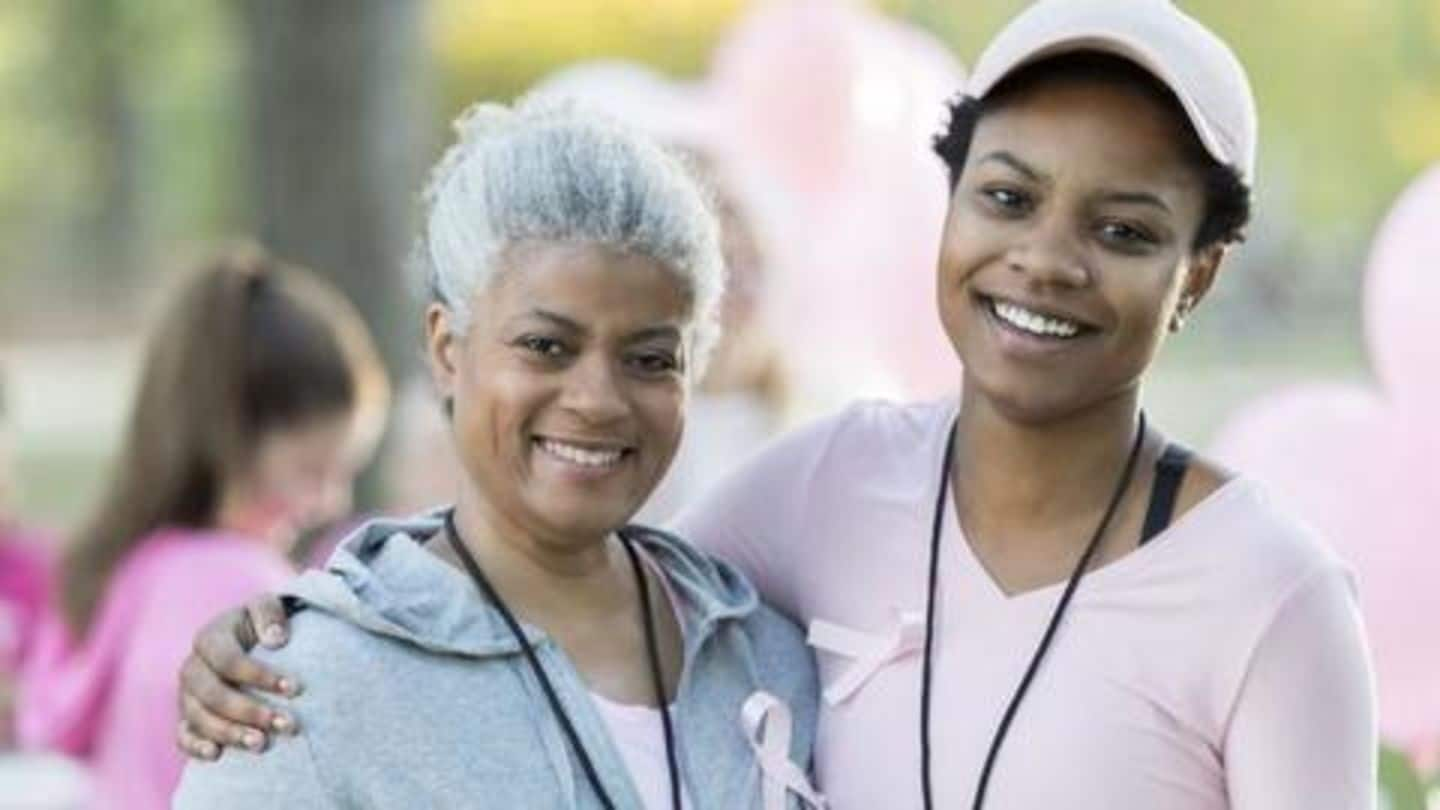
Breast cancer: Symptoms, risk factors, and prevention tips
What's the story
Breast cancer is the most common form of cancer among women, worldwide. It is basically the cancer that develops (and spreads) in the cells of the breasts. Although it is way more common in women, it can affect men as well. However, of late, there has been a marked improvement in the awareness and funding around this deadly disease. Here's more.
When to worry?
Signs and symptoms
Major signs or symptoms of breast cancer include an unusual lump or thickening of the breast, change in size/shape/appearance of one or both breasts, and redness of the skin over the breast. A sunken or inverted nipple, unexplained discharge from the nipple, and peeling or flaking of skin might be also be worrying signs. One might also experience pain in nipple, breast, or armpits.
Risk factors (1)
Risk factors: Gender, genetics, and age
Basically, excessive or uncontrollable cell growth is what leads to cancers. Here are the major, science-backed risk factors that might lead to breast cancer: Gender: As mentioned before, women are way more likely to develop breast cancer, compared to men. Genetics: If a close family member, such as a mother or sister has suffered from breast cancer, your risk takes a hike. Age: More the age, greater the risk of breast cancer.
Risk factors (2)
Personal history, Body weight, Pregnancy conditions, Alcohol intake
Personal history of such conditions: If you have had a history of breast conditions, your risk of developing breast cancer might rise considerably. Certain pregnancy conditions: Women who have never been pregnant, or those who conceive a child at an older age (35+) are at a greater risk. Alcohol: Studies have shown that women who drink excessive alcohol are more prone to developing breast cancer. Body weight: High levels of estrogen, due to obesity, might also lead to breast cancer.
Tips
Prevention tips
Making certain healthy changes in your daily lifestyle might help lower down your risk of getting breast cancer. Here are some helpful prevention tips: 1) Cut down on alcohol intake, or better off, get rid of it completely to stay safe. 2) Aim for moderate exercise on a daily basis. 3) Obesity is a risk factor. So, try and maintain a healthy body weight. 4) Follow a healthy diet, loaded with fresh veggies and fruits.